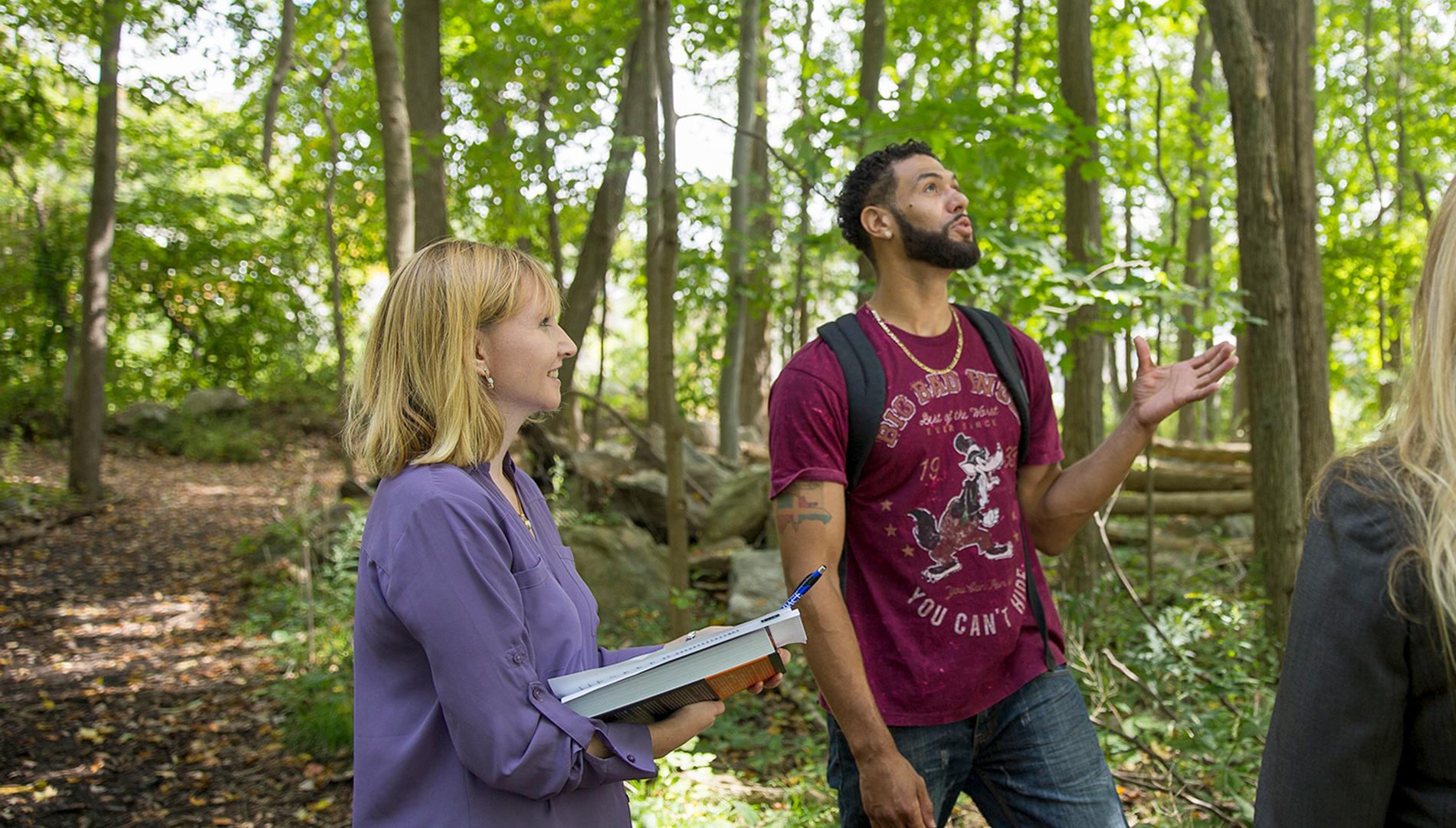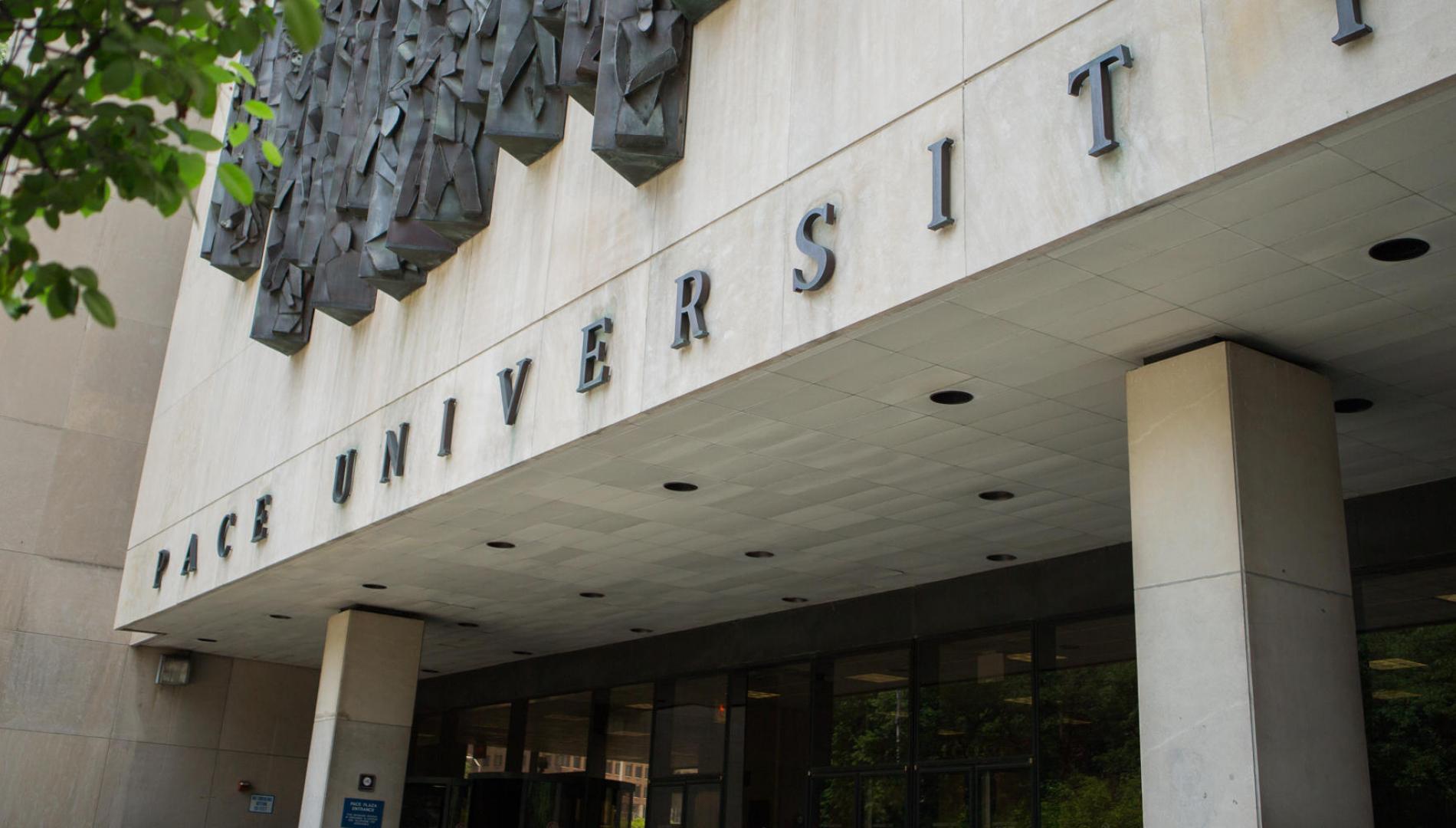
MS IN ENVIRONMENTAL SCIENCE AND POLICY
We’ll connect you with an advisor to help explore your academic and professional opportunities with our Master’s program in Environmental Science and Policy.
The Master of Science in Environmental Science and Policy from the Dyson College of Arts and Sciences prepares you to lead sustainability initiatives through a unique blend of scientific training and policy development. This environmental policy master’s helps you gain the interdisciplinary skills needed to shape environmental solutions in government, nonprofits, or private industry.
Program highlights:
- Complete in as little as two years (36 credits) with hybrid or on-campus courses in Westchester
- Integrates science, policy, law, and advocacy for real-world environmental leadership
- Prepares graduates for careers in sustainability consulting, environmental policy, climate research, and public advocacy
- Courses in ecosystem management, environmental law, energy policy, and data analysis
- Opportunities to work with faculty on applied research and community-based projects
- Focus on climate change mitigation, natural resource management, and environmental justice
- Badged internship and career success programs are available for international and domestic students
- Located in Westchester with access to fieldwork sites, agencies, and advocacy groups
With a Master's degree in Environmental Science and Policy, you will have career options such as:
- Advocacy community organizer
- Consultant
- Conservation scientist, manager, or land steward
- Environmental program coordinator
- Legislative staff aide
- Policy analyst
- Policy associate
- Sustainability specialist
- Further studies via PhD programs
Alumni work in roles such as:
- Consultant, Guidehouse
- Ecological Monitoring Coordinator, Stone Barns Center for Food and Agriculture
- Environmental Justice Manager, New York Power Authority
- Environmental Scientist, Avanti Corporation
- Horticulture Program Manager, Cornell Cooperative Extension
- Invasive Species Technician, NYS Office of Parks and Recreation
- Lead Regional Stewardship Technician, NYS Parks, Recreation, and Historic Preservation
- Legislative Analyst, Oklahoma State Senate
- New York State Governor's Representative, Upper Hudson Valley Region
- Northeast Carbon Alliance Project Manager, Scenic Hudson
- Policy Associate, Farm Animal Program, Animal Welfare Institute, Washington, D.C.
- Policy Organizer, NYC Environmental Justice Alliance
- Refuse Manager and Wildlife Biologist, US Fish and Wildlife Service
- Regional Deputy Director, US Senate Majority Leader
- Research Analyst, Bureau of Energy and Technology Policy at CT DEEP
- Solar Program Associate, SolarOne
- Sustainability Program Associate, New York University

To achieve a sustainable planet, we need professionals who can effectively bridge the gap between science and policy.
– Director Michelle Land, JD
About Dyson College of Arts and Sciences
Dyson College at Pace University offers the resources and caliber of faculty that you would expect at a large university, while providing the close personal attention associated with a small college experience.
In small classes taught by caring faculty who are active practitioners in their fields, Dyson offers innovative programs at convenient locations in New York City, Westchester, and online.